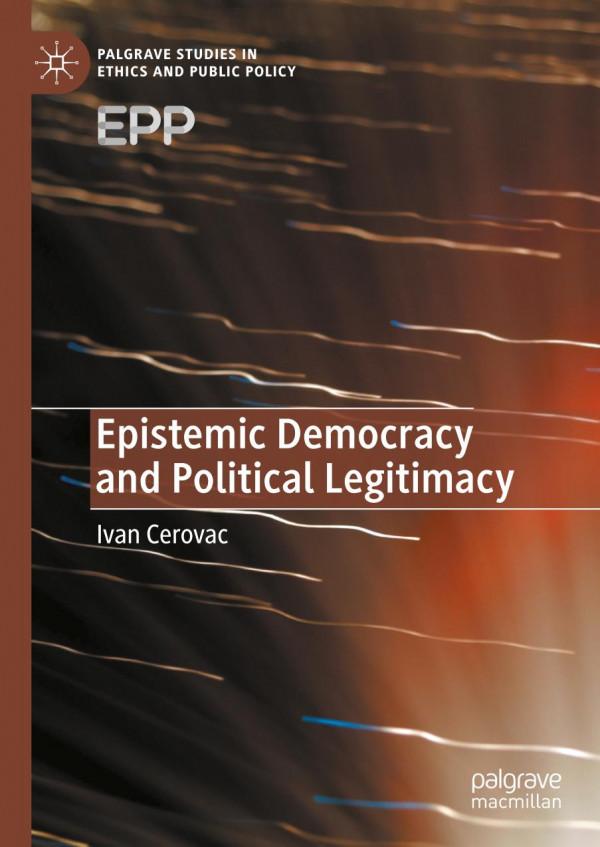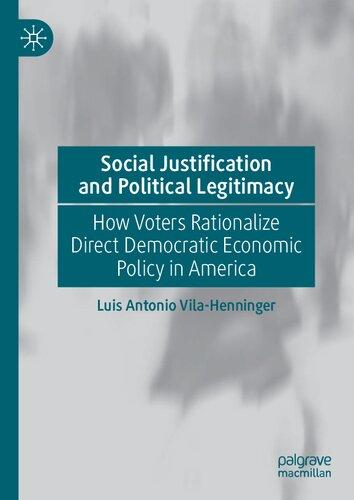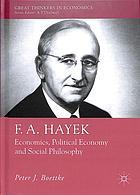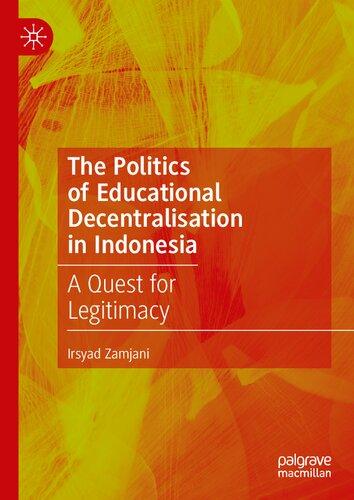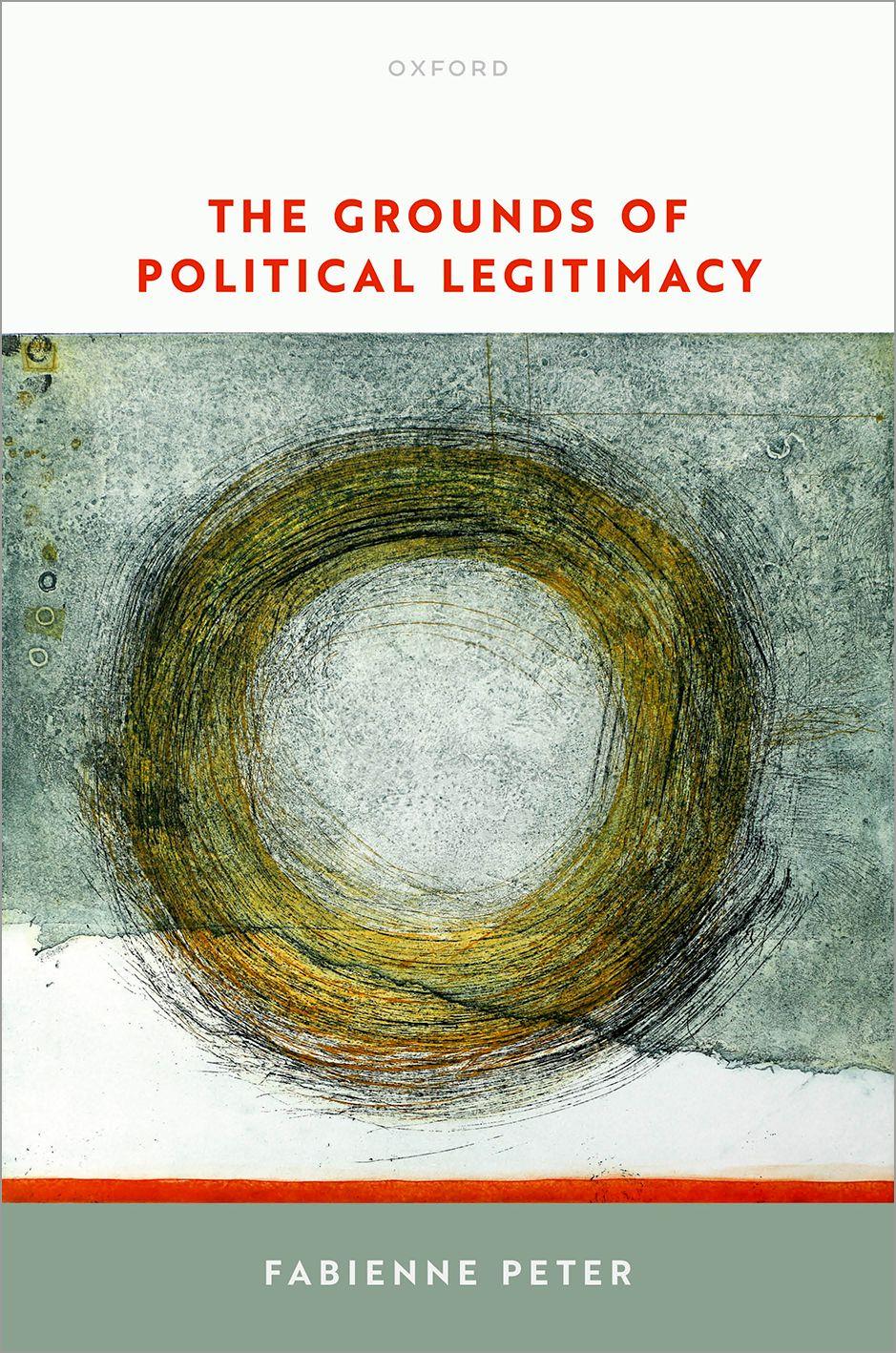The Grounds of Political Legitimacy
FABIENNE PETER
Great Clarendon Street, Oxford, OX2 6DP, United Kingdom
Oxford University Press is a department of the University of Oxford. It furthers the University’s objective of excellence in research, scholarship, and education by publishing worldwide. Oxford is a registered trade mark of Oxford University Press in the UK and in certain other countries © Fabienne Peter 2023
The moral rights of the author have been asserted
All rights reserved. No part of this publication may be reproduced, stored in a retrieval system, or transmitted, in any form or by any means, without the prior permission in writing of Oxford University Press, or as expressly permitted by law, by licence or under terms agreed with the appropriate reprographics rights organization. Enquiries concerning reproduction outside the scope of the above should be sent to the Rights Department, Oxford University Press, at the address above
You must not circulate this work in any other form and you must impose this same condition on any acquirer
Published in the United States of America by Oxford University Press 198 Madison Avenue, New York, NY 10016, United States of America
British Library Cataloguing in Publication Data Data available
Library of Congress Control Number: 2023930841
ISBN 978–0–19–887238–2
DOI: 10.1093/oso/9780198872382.001.0001
Printed and bound by CPI Group (UK) Ltd, Croydon, CR0 4YY
Links to third party websites are provided by Oxford in good faith and for information only. Oxford disclaims any responsibility for the materials contained in any third party website referenced in this work.
9.
Preface
I first started working on political legitimacy in the context of my doctoral dissertation more than 30 years ago. I’ve been tempted to close this line of research many times, but political events kept reminding me that political legitimacy is one of the most important normative concepts that we have. Political challenges such as climate change or the recent Covid-19 pandemic require an adequate response that respects the constraints of political legitimacy. But what are those constraints? My thoughts on this issue have shifted over the last decade or so. I used to think that democracy was the only possible source of legitimacy. But I don’t think that anymore.
I still believe that there is a deep connection between inclusive political deliberation, of the sort supported by a democratic political culture, and political legitimacy. Any erosion of a democratic political culture would be a step in the wrong direction. But the track-record of democracies in meeting important political challenges is dubious. Think of climate change, or of deepseated and still widening social and economic inequalities. Of course, some of the political problems we are facing today are the result of corrupted democracies, not the fault of democracy itself. But as the Covid-19 pandemic has also made vivid, there is potentially a lot at stake in political decision-making. Wrong political decisions can put us all at risk. I now think that a failure to take measures necessary to protect the population from potentially catastrophic outcomes is a distinct source of illegitimacy. Democratic decisionmaking might not offer sufficient safeguards in this regard. Political office holders and citizens can and should be held accountable to a higher standard. In this book I explain what this might entail.
I’m deeply indebted to a great number of people for helping me develop my thoughts on the topics of this book. I’ve particularly benefited from conversations with Dave Estlund, the late Jerry Gaus (alas!), Klemens Kappel, Michael Hannon, Herlinde Pauer-Studer, and Kai Spiekermann. Others I wish to thank include Elizabeth Anderson, Adam Arnold, Natalie Ashton, Elvio Baccarini, Sameer Bajaj, Thomas Baldwin, Aurélia Bardon, Christian Barry, Duncan Bell, Chris Bertram, Luc Bovens, Matthias Brinkmann, Bruce Brower, Ian Carter, Quassim Cassam, Robin Celikates, Ivan Cerovac, Emanuela Ceva, Bruce Chapman, David Christensen, Tom Christiano, Matthew Clayton,
Tony Coady, Rowan Cruft, Kevin Dorst, Antony Duff, John Dunn, Elizabeth Edenberg, David Enoch, Cécile Fabre, Julian Fink, James Fleming, Rainer Forst, Sandy Goldberg, Alvin Goldman, Bob Goodin, Stefan Gosepath, Amanda Greene, Alex Guerrero, Dan Halliday, Antony Hatzistavrou, Jonathan Heawood, Ulrike Heuer, Duncan Ivison, Jack Knight, Chandran Kukathas, Cécile Laborde, Jennifer Lackey, Dimitri Landa, Charles Larmore, Christian List, Steve Macedo, Matt Matravers, Katrin Meier, David Miller, Liam Murphy, David O’Brien, Philip Pettit, Ryan Pevnick, Snježana Prijić Samaržija, Jonathan Quong, Joseph Raz, Massimo Renzo, Patricia Rich, Henry Richardson, Regina Rini, Oliver Roy, Kristen Rundle, Debra Satz, Ben Saunders, Hans Bernhard Schmid, Melissa Schwartzberg, Rob Simpson, Zofia Stemplowska, Tom Stoneham, Victor Tadros, Bob Talisse, Anthony Taylor, Patrick Tomlin, Yann-Allard Tremblay, Alex Worsnip, Han van Wietmarschen, Chad van Schoelandt, Kevin Vallier, Andrew Valls, David Velleman, Daniel Viehoff, Alex Voorhoeve, Steve Wall, Kit Wellman, Leif Wenar, Catherine Wilson, Jo Wolff, and Gabriel Wollner.
Many more people have given me helpful feedback at conferences, workshops, and research seminars, and I’m so grateful to organisers and participants. Events included the following: panel on the epistemic responsibilities of citizens, APA Eastern Division annual conference, Baltimore; Democratic Reasons workshop, University of Warwick; online workshop on Should We Listen to Those Who Deny Science?; Legitimate Decision-Making in Times of Crisis workshop, The Hoffberger Center for Professional Ethics, University of Baltimore; Epistemic Circumstances of Democracy conference, University of Rijeka; Justitia Amplificata annual conference, Frankfurt; Normative Theory Group workshop, University of Hamburg; Political Epistemology workshop, Georgetown University; Legitimacy and Stability in Fractious Times workshop, University of Leeds; Association for Social and Political Philosophy annual conference, LUISS Guido Carli/Sapienza, University of Rome; Political Epistemology conference, Institute of Philosophy, London; PPE conference in honour of Luc Bovens, LSE; Deep Disagreements conference, Humboldt University Berlin; Democracy, Legitimacy, and Hate Speech conference, Queen Mary University; Law and Normativity workshop, Queen Mary University, Law School; Nomos conference on political legitimacy, APA Central Division annual conference, Kansas City; Legitimacy and the State conference, Julius Stone Institute of Jurisprudence, University of Sydney; workshop on Justice and Risk, Nuffield College Oxford; conference on Contractarianism, Inter University Centre Dubrovnik; workshop on Religion and Public Justification, University College London; Epistemic Value of Group Deliberation conference,
Northwestern University; New Directions in Public Reason conference, University of Birmingham; Value of Democratic Procedures workshop, University of Pavia; workshop on Factual Disagreements and Political Legitimacy, University of Copenhagen; Oxford Studies in Political Philosophy conference, Tucson; Society for Applied Philosophy annual conference, University of Zurich; conference on Why Not Epistocracy? University of Oslo; workshop on Steven Darwall’s work, University of Vienna; Democracy conference, University of Belgrade; Walking With Rousseau: Group Attitudes between Aggregation and Association workshop, University of Geneva; Democracy workshop, University of Basel; conference on Social Epistemology and Epistemic Responsibility, King’s College London; Experts and Deliberative Democracy workshop, University of Hull; conference on “John Rawls’ ‘Political Liberalism’ ”, University of Bochum; symposium on Gaus’ The Order of Public Reason, LSE; Democracy and Rights workshop, University of Stirling; Epistemic Life of Groups workshop, London; Authority, Legitimacy, and Legality conference, University of Vienna; the Association of Social and Legal Philosophy annual conference, University of Warwick; Authority, Legality, and Legitimacy conference, Distortions of Normativity Project, Vienna; workshop on the Epistemic Life of Groups, Institute of Philosophy, London. I’ve also received many helpful suggestions at research seminars at ANU, University of Cambridge, East Anglia, EHESS in Paris, Hull, Leiden, Maxwell School of Citizenship and Public Affairs at Syracuse, Melbourne, NUI Galway, NYU, University of Oxford, University of Rijeka, University of Stirling, Tulane University, University of York, and at the New Directions in Political Epistemology seminar series at the Institute of Philosophy in London.
Over the course of working on the themes of this book, I was invited to give talks at several graduate conferences, and the discussions there were among my favourites. I thank audiences at the Knowledge and Power: Epistemic Conflicts in Democracy conference, University of Essex; the St Andrews CEPPA graduate conference in April 2021; the 1st Geneva graduate conference in political theory; the PPE graduate conference in Witten-Herdecke in May 2016; the 13th Pavia Graduate Conference in Political Philosophy; and the 5th International Graduate Conference at the CEU in Budapest. I also benefited immensely from two events at the University of Rijeka: a summer school in 2016 and a symposium in 2013 dedicated to my work on democratic legitimacy.
In July 2021 I gave the Wittgenstein Lectures at the University of Bayreuth, and that was a first test run for the full manuscript. It was a very intellectually stimulating week! I’m very grateful to Gabriel Wollner and everyone else
involved in organising the event. I received many excellent questions and comments from students and faculty that helped me improve the presentation of my argument. Two anonymous reviewers at OUP provided extremely thoughtful and helpful feedback on each chapter, and I think the book improved a lot thanks to their comments. I’m also very grateful to Michele Giavazzi for his insightful comments and his help with preparing the final version of the manuscript.
I started the research programme that led to this book when I held a Leverhulme research fellowship on The Normativity of Political Legitimacy in 2010/11. I’m very grateful to the Leverhulme Trust for this fellowship. I also greatly benefited from a one-month stay at the ANU in 2016, following an invitation from Geoff Brennan and generously supported by their PPE programme. I had many enjoyable conversations with Geoff on the topics of this book during that time, and was very saddened by his recent death. From 2019 to 2022, I was involved in a collaborative AHRC-funded project on Norms for the New Public Sphere. I very much enjoyed the regular research meetings I had with Rowan Cruft, Jonathan Heawood, and Natalie Ashton, which touched on many aspects of this book. In 2021/22, I had the good fortune of spending a year at Tulane University, on a Murphy Fellowship at the Center for Ethics and Public Affairs. I had a wonderful time in New Orleans, also thanks to many conversations with Michael Hannon and David O’Brien, and the fellowship allowed me to complete the work on this book (and start a new research project in moral philosophy).
The book incorporates material from previously published papers, and I thank the publishers for giving me permission to use this material.
“Epistemic Norms of Political Deliberation.” In Michael Hannon and Jeroen de Ridder (eds.), Routledge Handbook of Political Epistemology. New York: Routledge, 2021, pp. 395–406.
“The Grounds of Political Legitimacy.” Journal of the American Philosophical Association 6(3): 372–90, 2020.
The book also draws on ideas from the following publications and I’m grateful to the publishers for allowing me to do so:
“Truth and Uncertainty in Political Justification.” In Elizabeth Edenberg and Michael Hannon (eds.), Political Epistemology. Oxford: Oxford University Press, 2021, pp. 64–75.
“Political Legitimacy under Epistemic Constraints: Why Public Reasons Matter.” In Jack Knight and Melissa Schwartzberg (eds.), Political Legitimacy (Nomos volume). New York: NYU Press, pp. 147–73, 2019.
“Legitimate Political Authority and Expertise.” In Wojciech Sadurski, Michael Sevel, and Kevin Walton (eds.), Legitimacy: The State and Beyond. Oxford: Oxford University Press, pp. 32–42, 2019.
“Political Legitimacy.” Stanford Encyclopedia of Philosophy (Summer 2017 Edition), Edward N. Zalta (ed.) https://plato.stanford.edu/archives/ sum2017/entries/legitimacy/.
“The Epistemic Circumstances of Democracy.” In Miranda Fricker and Michael Brady (eds.), The Epistemic Life of Groups. Oxford: Oxford University Press, 2016, pp. 133–49.
I’m very grateful for detailed comments I’ve received on all those papers, especially from Michael Brady, Jeroen de Ridder, Elizabeth Edenberg, Miranda Fricker, Michael Hannon, Jennifer Rubenstein, Melissa Schwartzberg, Micah Schwartzman, Kevin Walton, and from anonymous referees.
My final set of thanks has less to do with the content of this book. First of all, I want to express my deep gratitude to my partner Nigel for his warm support and great sense of humour. Thanks also for helping me stay grounded! And I want to thank Heike Roesel for allowing me to use her wonderful print “Loop II” on the cover of this book. Finally, I want to thank the OUP team for all their help in producing this book.
Political Legitimacy
Political decisions have the potential to greatly impact our lives. Think of decisions in relation to abortion or climate change, for example. This makes political legitimacy an important normative concern. As I understand it, it is a concern with the permission to make binding political decisions. We expect political office holders to uphold the constraints of political legitimacy. Abuses of political power are illegitimate. We also expect citizens to honour political decisions that are legitimate. But what grounds these normative expectations towards political office holders and citizens? In other words, what makes political decisions legitimate? Are they legitimate in virtue of having support from the citizens? This is what democratic conceptions of political legitimacy maintain. And they are right to highlight that legitimate political decisionmaking must respect well-founded disagreements among the citizens. But what if democratic decisions fail to track what there is most reason to do? For example, what if a democratically elected government fails to take measures necessary to protect its population from threats related to climate change? Shouldn’t that be recognized as a source of illegitimacy? The question of what makes political decisions legitimate is not new. But revisiting it is timely in light of increasing pressures on democracy and the high-stakes political problems that governments are facing.
1.1 What Makes Political Decisions Legitimate?
There are two approaches we can take to studying political legitimacy as I’ve defined it. A normative approach investigates the normative conditions under which there is a permission to make a binding political decision. That approach focuses on the relationship between political legitimacy and other normative concerns, for example a concern with justice, or with respect for the citizens’ autonomy. A second approach, which is often overlooked, is meta-normative. That approach focuses on the grounds of political legitimacy. The grounds of political legitimacy are the sources of its normativity.
In this section, I first introduce how I think about our key question: what makes political decisions legitimate? I then explain why legitimacy is an important normative concern. In the final section of this chapter, I discuss the differences between a normative and a meta-normative perspective on political legitimacy.
(a) The Political Will
Many think that political legitimacy depends on some form of democratic political control. We can witness the force of this idea in the regularly occurring calls for more democracy—in the Hong Kong protests of 2019, for example, but also in regional resistance to overly centralized forms of government. On this widely held view, political decisions are legitimate in virtue of having been made democratically in one form or another.
The appeal to democracy is just one example of a very robust and longstanding tradition of political thought that takes the will of the people as the ground of political legitimacy. The idea that the political will is the ground of political legitimacy is prominently articulated in social contract theories (e.g. Hobbes 2017 [1651]). But we also find it in contemporary forms of liberalism (e.g. Rawls 1993) as well as in republicanism (e.g. Pettit 2012). The broader claim, to which democratic theories of political legitimacy tend to be committed, is that political decisions are legitimate in virtue of how they respond to the political will.
With the surge of populism that we are witnessing early in the 21st century, appeals to the political will have become even more prominent, but also more dubious. While populists appeal to the political will, this appeal isn’t necessarily democratic. Populists themselves tend to pitch the will of the people in opposition to decisions made by democratically elected representatives. It is often claimed that the political elite is out of touch and that there is a will of the people that is in opposition with the decisions made by parliament (e.g. Mudde and Kaltwasser 2012; Muller 2017). Critics of populism tend to attack this attempt to circumvent democracy in the name of the political will (e.g. Weale 2018).
Faith in democracy, and in the political will as the ground of legitimacy, is also being undermined in a different way. 2016, in particular, is the year in which many lost confidence in democracy, first with the Brexit decision in June 2016 and then with the election of Trump in November of that year. Of course, there have been controversial democratic decisions before 2016
(think of the Swiss minaret building ban, to use just one of many examples). And the rapidly rising economic and social inequalities in many longestablished democracies, the slow response to the climate crisis, and many similar examples have also shed doubt on the ability of democracies to tackle urgent political problems. The question many have asked in response to such cases is, how can the political will be a ground of political legitimacy if it is uninformed or easily misled, and if democratic procedures have a tendency to uphold the wrong decisions (e.g. Brennan 2016)?
To be clear, that some people disagree with a democratic decision is not, in itself, a reason to start doubting democracy. That’s just a feature of democracy, and it is inevitable if democracy is a tool for making political decisions in the face of political disagreements (Waldron 1999). And that some democratic decisions turn out to be mistakes need not be enough to lose confidence in democracy either. Mistakes do not pose a problem for political legitimacy if we can trust democracy to make fewer such mistakes or to realize values that offset the costs of any mistakes.
Democracy is in trouble, however, if relying on the political will stands in the way of making legitimate decisions. And that is the case in circumstances in which the problem doesn’t just arise from a deformation of the political will—say because of a corruption of democratic decision-making procedures. Democracy is in trouble in circumstances in which the political will is itself a source of illegitimacy. Consider decision-making in response to the climate crisis, as an example. Could it be that citizens can’t always be trusted to correctly assess the threat that climate change poses, and to make the right decisions for future generations? Current circumstances force us to consider this as a possibility. In light of these pressures on the political will as a ground of legitimacy, it is thus timely to consider alternatives.
(b) Cognitive Political Authority
The main alternative to the view that the political will is the ground of political legitimacy is the view that decision-making power should be placed in the hands of those with an ability to track the right decisions. Call this ability cognitive political authority, or cognitive authority, for short.
The idea that legitimate political decisions are those made by someone, or a body of people, with cognitive authority used to be quite common before the Enlightenment. We find it articulated in Plato’s Republic, which criticizes the arbitrariness of democracy and argues in favour of the philosophers’
rule—rule by those who have cultivated expertise in identifying the right decisions and who are not side-tracked by their own interests. As Plato writes (473d–e):
there will be no end to the troubles of states, or . . . of humanity itself, till philosophers become kings in this world, or till those we now call kings and rulers really and truly become philosophers, and political power and philosophy thus come into the same hands.1
The idea that the ground of political legitimacy is cognitive political authority, and not the political will, can also be traced to the Bible. Chapter 13 of the Epistle to the Romans is an origin of the divine right of king theory of political legitimacy. While some versions of this theory grant absolute political power to monarchs, Luther’s influential interpretation of this passage suggests that secular rulers are uniquely authorized to rule in virtue of their superior grasp of God’s will, and to the extent that they do have this superior grasp.2
The Enlightenment has put pressure on the belief that there is a natural political hierarchy grounded on epistemic privilege. Who has cognitive political authority? Who is best able to judge, which political decision should be made? If the ability to make political judgments is a product of our faculty of rationality, a faculty that (adult) citizens have in roughly equal measure, isn’t a legitimate political decision one that responds to the citizens’ will?
Despite these challenges, the idea that political decisions are legitimate in virtue of being based on cognitive political authority has lasting appeal in contemporary political philosophy. We find the idea well articulated in Joseph Raz’ work (e.g. Raz 1986) and in work that builds on that. As I’ll explain in more detail later (in Chapter 4), Raz argues that political legitimacy depends on whether a de facto political authority—say a government—is able to track what there is most reason to do with sufficient reliability. The thought is that if the citizens are less well placed to track the right decisions themselves, they should defer to the political authority. Relatedly, those who defend epistocratic conceptions of political legitimacy (e.g. Brennan 2016) also invoke cognitive political authority as the ground of political legitimacy. On an epistocratic conception, political decision-making should be in the hands of those who are sufficiently competent. But it’s not only elitist theories that
1 Quoted from the Penguin edition. See also the discussion in Lane’s introduction to this edition on page xxxiiff
2 See Skinner (1978: 14ff.).
prioritize cognitive political authority. Some epistemic theories of democracy are also best interpreted as committed to the view that political legitimacy stems from cognitive political authority, not the political will. On those conceptions of democratic legitimacy, cognitive political authority is achieved by a wisdom-of-the crowds process (e.g. Landemore 2013; Goodin and Spiekermann 2019).
At a more practical level, we can illustrate the idea that political legitimacy may stem from cognitive political authority in relation to the political role of experts. It is often said that experts can only advise, not decide. But this masks the influence of cognitive political authority on legitimate political decisionmaking. To see this influence, consider how we’d assess a government that disregards overwhelming expertise on a particular political problem. In the water crisis in Flint, Michigan, for example, the government came under massive pressure once it was established that the tap water was highly toxic.3 A democratically elected government can’t legitimately ignore a problem that threatens the health and the lives of its population, once it’s clear what the problem is and how it can be remedied. If there is sufficient expertise on a particular issue, then political decision-makers are left with very little wriggle room: legitimate political decision-making must then reflect such expertise. The example shows that there are cases in which cognitive political authority, and not the political will, settles what political decisions can legitimately be made.
(c) Epistemic Underdetermination and Epistemic Accountability
While the benefit of expert-led political decision-making in the case of a water crisis is perhaps obvious, it is also clear that this sort of robust expertise is not usually available in what we may call the epistemic circumstances of politics.4 This epistemic problem puts a distinct kind of pressure on cognitive political authority as the ground of political legitimacy.
3 As Pauli (2019) documents it well, the Flint water crisis also illustrates the importance of democratic activism. It was activists, not experts, who first drew attention to the problem, and citizens’ participation played an important role throughout the crisis. I return to this issue in Chapter 8 (Section 8.3).
4 I’m echoing Waldron (1999) on the circumstances of politics here. As I’ll explain in chapter 4, the normal epistemic circumstances of politics are characterized by (i) fragmented bodies of evidence, (ii) insufficient political competence, and (iii) difficulties with identifying the expert point of view even if it exists. Estlund (2008) has drawn our attention to (iii), but the first two problems are also significant.
In the normal epistemic circumstances of politics, there are deep disagreements on what response a particular situation requires, including among experts, and this limits the political decision-making power that experts can legitimately hold. Cognitive political authority remains epistemically underdetermined in such scenarios. Consider the situation many countries faced two years into the Covid-19 pandemic. While a lot was at stake, governments faced the difficult task of weighing a wide range of relevant considerations— both moral and empirical. Decision-making had to factor in epidemiological risk, the social, economic, and health effects of prolonged lockdowns, the management of children’s education, the effects on health services and other services, and questions about welfare goals versus other goals, including the protection of liberty. As a result, there was, as is typical in political life, much room for disagreement, including among experts, and more political wriggle room.
While the epistemic circumstances of politics thus tend to be challenging, we shouldn’t rule out cognitive political authority as a possible ground of political legitimacy. A key claim of this book is that the political will isn’t the only ground of political legitimacy, even though it’s an important ground. There are at least some occasions in political life that require deference—from both political decision-makers and ordinary citizens—to cognitive political authority. I explain this on the basis of our epistemic accountability. Epistemic accountability is a state of being answerable for our actions—to ourselves and to others—that depends on our epistemic circumstances. When the epistemic circumstances are sufficiently favourable, our epistemic accountability implies that cognitive political authority trumps the political will as a ground of political legitimacy.
To accommodate favourable as well as unfavourable epistemic circumstances, I argue in support of a hybrid conception of political legitimacy. This hybrid conception recognizes both the political will and cognitive political authority as possible grounds of legitimacy. I call it the epistemic accountability conception of political legitimacy. It highlights that legitimate political decision-making is subject to epistemic constraints, not just to support from the political will. But, given the challenging epistemic circumstances of politics, it also recognizes the limits of cognitive political authority as a ground of legitimacy. In the normal epistemic circumstances of politics, political disagreements among the citizens are to be expected and legitimate political decision-making must respond to well-founded disagreements.
This way of thinking about political legitimacy is compatible with an important role for democracy in legitimate political decision-making.5 But the resulting argument for democracy as a ground of political legitimacy is importantly different from more standard arguments, whether moral or epistemic. The claim is neither that democratic decision-making is morally necessary for political legitimacy, nor that democracy has epistemic benefits that explain its role in legitimate political decision-making. Instead, the argument is that the legitimacy of democratic decisions derives from—and is limited to—the resolution of disagreements that remain when cognitive political authority is epistemically underdetermined. That’s a very important role, as we’ll see, given the epistemic circumstances of politics. But it’s a different take on how democracy contributes to political legitimacy.
To sum up, there are different (meta-normative) answers to the question of what makes political decisions legitimate. An important distinction is between answers that prioritize the political will and those that prioritize cognitive political authority. I argue that what makes political decisions legitimate depends on the epistemic circumstances. In favourable epistemic circumstances, cognitive political authority is the ground of political legitimacy. If cognitive political authority is epistemically underdetermined, however, which is the normal case in politics, then the political will, suitably understood, is the ground of political legitimacy. In those normal epistemic circumstances, legitimate political decision-making responds to well-founded disagreements among the citizens, for example through some form of democratic decision-making.
Now that I have introduced some of the main themes of this book, it’s time to turn attention to details of the approach I’m taking. In the next section, I motivate the normative concern with the legitimacy of political decisions. In the following section, I explain the advantages of taking a meta-normative, rather than a normative, approach to the question of what makes political decisions legitimate.
1.2 The Normative Concern with Political Legitimacy
I take it that if a political decision is legitimate, political office holders or other decision-makers—e.g. a democratic constituency—have permission to make
5 It doesn’t require democracy, however, as it’s also compatible with other forms of responding to a diversity of valid political views, for example through some form of sortition (e.g. Guerrero 2014).
that decision and the decision is binding for the citizens.6 Let me unpack this two-pronged definition of political legitimacy, first, before using it to discuss the normative concern with political legitimacy.
One reason the study of political legitimacy is notoriously difficult is that many different definitions of legitimacy abound. In adopting a two-pronged approach, according to which legitimacy relates to both a permission to make political decisions and the bindingness of those decisions, I’m broadly following Hanna Pitkin (1966: 39):
To call something a legitimate authority is normally to imply that it ought to be obeyed. You cannot, without further rather elaborate explanation, maintain simultaneously both that this government has legitimate authority over you and that you have no obligation to obey it.7
The relevant connection between a permission to make political decisions and their bindingness is sometimes understood as conceptual, for example when the permission to make political decisions is defined, in Hohfeldian terms, as a right to rule that correlates with a duty to obey (Raz 1986). On my understanding, which I will explicate as I develop the epistemic accountability conception, the connection is normative: the normative grounds of the permission to make political decisions are also the normative grounds of the bindingness of those decisions.
(a) A Right to Rule?
I characterize the normative power to make political decisions as a permission, not as a right to rule. If a political decision is legitimate, the decisionmakers were permitted to make it; if it is illegitimate, the decision-makers were not permitted to make it. Decision-makers may be governments,
6 As an immigrant and non-citizen resident, I’m well aware that most political decisions a country makes impact on any resident, not just on citizens, and this raises a question about which decisions should be binding for all residents. I experimented with different terminology to do justice to this problem, but didn’t find a satisfactory terminology. In the end I reverted to referring primarily to citizens, and I suggest that “citizen” is read broadly as a stakeholder, in general, which might include non-citizen residents, for example.
7 While I think some version of this two-pronged understanding of political legitimacy is widely shared, including by Raz (1986) and Rawls (1993), among others, there are exceptions. Estlund (2008) and Huemer (2012), for example, propose different interpretations. Buchanan (2002) has a good overview of how political philosophers have thought about legitimacy, authority, and obligation, and the relation between them. See also my SEP article on political legitimacy (Peter 2017).
government agencies, or individual political office holders. Importantly, in a democracy, they can also be whole democratic constituencies.8 My reason for characterizing this normative power as a permission, rather than as a right to rule, is that I want to emphasize that this normative power depends on context, specifically on the epistemic circumstances in which political decisions are made. The permission to make political decisions can be lost—and move to a different decision-making body—if the context changes.9
Political decisions matter a great deal and one part of the explanation for the distinctive normative concern with political legitimacy is that the permission to make political decisions should thus not come easily. Political decisions shape the lives of large numbers of people, in many respects and often for a long time. Political decisions come in many forms, but here are some of the main examples I’ll be focusing on in this book. First, there are decisions to introduce new laws or reform existing laws. Think of the Brexit decision, which profoundly changed the economic, social, and political relations of the UK with the EU. Or think of the decisions related to pandemic management that governments around the world had to make after the outbreak of Covid-19. Those decisions had to be made in the face of millions of people’s lives at stake, and they involved measures with the potential to significantly interfere with citizens’ livelihoods, well-being, rights, and liberties. No less weighty are decisions to appoint political office holders, for example a prime minister or members of parliament. The more powerful the political office is, the weightier the decision. A third type of political decision introduces new policies within an existing legal framework, such as a new welfare policy or a new immigration policy. Even those decisions can be very weighty, as the controversy around the US immigration policy of separating small children from their families has shown.
Throughout the book, I will limit my discussion to political decisions made in the context of state-bound political bodies and constituencies. But I do not mean to imply that the drawing (or redrawing) of political boundaries is not a potentially significant decision, or that there aren’t potentially very significant political decisions to be made at an international or global level, including decisions that concern the relationships between different constituencies, such as decisions on immigration, for example.10 These are all very important political issues. I’m focusing on the national context here because, empirically
8 It is a distinctive feature of democracy that citizens are both the binders and those who are being bound by democratic decisions—see Hershovitz (2003) on this.
9 For a different view on why a right to rule is too strong, see Applbaum (2019).
10 An excellent recent discussion of these issues can be found in Stilz (2019).
speaking, that’s where most legitimacy challenges arise. In a political world that would be more institutionally integrated at the international and global level, this would be the wrong focus. But given how the political world is organized now, most political decision-making power is organized within national political constituencies and I’m taking this as my starting point.11
(b) The Bindingness of Political Decisions
Determining who has permission to make a political decision is one reason why political legitimacy gives rise to a distinctive normative concern. The second reason is determining which political decisions are binding for the citizens. For example, if a democratic decision is legitimate, then all citizens are bound to comply with it, even those citizens who voted against it. Illegitimate decisions do not have this binding force and there might then be grounds for the citizens to take further political action or to engage in some form of civil disobedience.
There are different ways in which the bindingness of political decisions is understood. Many understand it in terms of duties (e.g. Raz 1986). Others, more weakly, in terms of being subject to a liability in Hohfeld’s sense (e.g. Applbaum 2019). On the duty account, citizens are under a duty to obey a legitimate political decision. On the liability account, a legitimate political authority has the moral power to create a duty for those under its rule. The citizens can’t claim immunity from a legitimate political authority. But they need not be under an obligation to obey, and this leaves room for civil disobedience even against legitimate political decisions. The two-pronged definition of political legitimacy that I introduced earlier follows the duty account. But I share with the liability account the sense that whether there is a duty to obey a political decision on a particular issue is an important question.
There is a further question of what grounds a duty to obey a political decision. The simple answer is that some duties are normatively basic. The more common answer is that the duty to obey a political decision is explained in terms of reasons to act accordingly (e.g. Raz 1986; Rawls 1993; Darwall 2006; Gaus 2011a: 246). While this answer is common, there are important differences among reasons accounts. On one version, favoured by Raz, the duty to
11 Supranational entities with considerable decision-making powers such as the EU and ASEAN are an important exception to this, however. By taking political boundaries as given, I’m also assuming that the jurisdiction problem does not arise (see Waldron 1993)—I’m focusing on political legitimacy in relation to governing a given constituency.
obey a legitimate political decision is independent of the citizens’ own reasoning. On a second version, the bindingness of political decisions depends on the citizens’ own capacity to rationally bind themselves to act as directed. I take an intermediary view on this issue, which I’ll explain when I develop the epistemic accountability conception of political legitimacy.
The bindingness of legitimate political decisions has led many political philosophers to think that political legitimacy depends on the citizens’ consent and there is a long tradition in political philosophy that associates political legitimacy with the consent of the governed (see Locke 1980 [1690], Rousseau 1988 [1762]). On the consent view, political legitimacy derives from an act of approval (express or tacit) from the citizens. While this is an influential way of thinking about political legitimacy, and I discuss examples in Chapter 2, I argue in Chapter 6 that the citizens’ consent is neither conceptually nor normatively required for legitimate political decision-making.
There is an important alternative view, which is probably the mainstream view in political philosophy today. On this alternative view, political legitimacy relates to the reasons that justify political decisions or the way in which they are made.12 On the latter, which I call the justificationist view of political legitimacy, the property of political legitimacy is a property of justification of sorts. The conception of political legitimacy that I develop and defend in this book is a version of the justificationist view and an important aim of this book is to explain what sort of justification is at the heart of political legitimacy.13
(c) Legitimacy as a Property of Political Decisions
My definition of political legitimacy characterizes legitimacy as a normative property of political decisions. As my discussion so far has illustrated, I focus, in the first instance, on the legitimacy of political decisions, not on the legitimacy of the body that makes the decision. It’s important to note that this is merely a methodological commitment, and nothing substantial hinges on this. If we take a decision-centred approach, the legitimacy of a political authority is explained in terms of the legitimacy of the decision it makes. If we
12 Horton (2012) draws a similar distinction and labels the two views the libertarian and the Kantian views of political legitimacy.
13 I’ll comment on the distinction in a number of places below, but a full discussion of my objections to consent theory and my argument in favour of a justificationist theory can be found in Chapter 6.
take an institution-centred approach, the legitimacy of political decisions is explained in terms of the legitimacy of the political authority.
Both approaches are common in the literature on political legitimacy.14 But I think the decision-centred approach to political legitimacy is an attractive starting-point for investigating alternative conceptions of political legitimacy because it makes only minimal assumptions about the concept of legitimacy. Most importantly, unlike institution-centred approaches, it does not presuppose a particular account of the institutions in which political decisions are made. For example, it does not tie legitimate political decisions to a particular type of state, say a democratic state. As such, the view lends itself to examining a broad range of conceptions of political legitimacy and of the political institutions they support.
It might be objected that the decision-centred approach is at odds with the rich tradition in political thought, going back at least to Hobbes, that takes political legitimacy to be a property of political institutions such as states. But the tension is only apparent. As a methodological tool, the decision-centred approach that I adopt does not presuppose a particular substantive account of the relationship between legitimate political decisions and the political institutions in which they are made. It is compatible with an approach that sees the legitimacy of political decisions as determined by properties of the institutions in which they are made. Even an account that centres on the problem of justifying the state, for example, will ultimately distinguish between legitimate political decisions—those made by a state that satisfies certain conditions—and illegitimate political decisions.
To add a further point of clarification, note that the normative property of legitimacy should be distinguished from other normative properties that political decisions might have. Of particular interest are properties such as being morally right or just, legal, or efficient. While political legitimacy might not be completely independent of these other normative properties, it is a distinct normative concern. The question how legitimacy relates to these other normative concerns is thus non-trivial.
The difference between legitimacy and the normative property of legality is worth dwelling on a bit further, as this sometimes creates confusion. A political decision is legal if it has been made in conformity with relevant law. For example, the Biden election was legal because relevant election law was upheld in all US states. An illegal political decision, by contrast, violates relevant political law. Political legitimacy doesn’t refer to relevant law, at least
14 The decision-centred approach is also common in economics (e.g. Sen 2017).
not in the first instance. Instead, it refers to a conception of political legitimacy. A legitimate political decision is a decision that satisfies the conditions of the correct conception of political legitimacy. If the correct conception requires democratic presidential elections, for example, then a decision that satisfies the relevant condition(s) is legitimate. The correct conception of political legitimacy might or might not be reflected in relevant law—for example in election law. If it is, then legitimacy and legality coincide. If it is not, then the two might come apart.
It’s a further illustration of the distinctive normative concern with political legitimacy that legal decisions might be illegitimate. If they are, the decisionmakers are legally permitted to make the decision, and the citizens and other residents are legally bound to obey that decision, but what is legally sanctioned deviates from what legitimacy would entail about what’s permissible and obligatory. The normative concern with political legitimacy thus offers a platform from which the law, including the law regulating political decisionmaking, can be critically scrutinized.
In sum, I’ve described political legitimacy as a normative property of political decisions. If a political decision has this property, there is a permission to make that decision and the decision is binding. Political decisions might also have further normative properties, but the concern with legitimacy is distinct from other normative concerns we might have, including in the political domain.
1.3 The Meta-normative Perspective
Given that political legitimacy is an important normative concern, we might ask how political legitimacy relates to other normative concerns. In this book, I will take a meta-normative approach to the question of what makes political decisions legitimate, focusing on what I call the grounds of political legitimacy.
(a) Normative versus Meta-normative Approaches
Many debates in political philosophy tend to take place at the first-order level, including debates about political legitimacy. How important are democratic values—such as freedom and equality—for political legitimacy? What is more important for legitimate decision-making, that political decisions are just or welfare-enhancing, or that the decision-making process respects certain
political rights? Are citizens bound to obey unjust political decisions, or can only just decisions be legitimate? These are just some examples of how political philosophers have debated political legitimacy, focusing on first-order considerations such as values, rights, and obligations.
These first-order questions are important, and they lead to illuminating distinctions among competing conceptions of political legitimacy. Consider the relationship between legitimacy and justice as an example. Most political philosophers—but not all!—accept that a legitimate political decision need not be just.15 But what about a just decision? Is it necessarily legitimate? Some philosophers answer yes (e.g. Rawls 1995). They take the view that justice has the same normative foundations as legitimacy, but justice is more demanding than legitimacy. Other philosophers answer no (e.g. Simmons 2001). On that view, the normative foundations of legitimacy are different from the normative foundations of justice. Justice and legitimacy just make different normative demands on political decision-making.
A further distinction among conceptions of political legitimacy originates at the meta-normative level, not at the (first-order) normative level, and that distinction cuts across distinctions at the normative level. Conceptions of political legitimacy differ depending on what they take to be the source of the normativity of this particular property of political decisions. For example, how important are subjective considerations—such as consent or the accessibility of the justification for political decisions—relative to objective considerations—such as the intrinsic rightness of a political decision? The meta-normative approach foregrounds questions such as the following. Does political legitimacy necessarily relate to what the citizens want from their government, or to what they reasonably judge the government should do? Could a political decision be legitimate even if the majority of the citizens oppose it? Does it matter for the political legitimacy of a government whether the decisions it makes are, in fact, the right ones, quite independently of what anyone thinks? Does legitimate decision-making presuppose that citizens and governments are well informed?
The meta-normative approach that I take in this book is less common in political philosophy than the normative approach, but political philosophers have previously examined meta-normative aspects of theories of political legitimacy. As I read John Rawls’ work, for example, one of its key contributions lies in his theory of political justification (Rawls 1993). So-called realist theories of political legitimacy have also highlighted meta-normative issues,
15 Buchanan (2002) argues that political legitimacy is a criterion of minimal justice.
primarily in relation to the question whether there is a distinctively political normativity.16 What seems to be missing in both those traditions, however, is an examination of how the normativity of political legitimacy intertwines with how philosophers think about normativity in other domains—especially in meta-ethics and in epistemology.17 One of my main aims in this book is to offer an account of the normativity of political legitimacy that is continuous with other work on normativity while still accounting for the distinctive features of the political realm.
As I hope will become clear, taking a meta-normative approach offers a fresh perspective on political legitimacy. It allows us not only to make progress in understanding why political legitimacy matters and what it requires. It also allows us to discuss pressing legitimacy-related political issues, such as the role of experts in political deliberation and political decision-making, the epistemic responsibilities of citizens, the dangers of authoritarianism, and the difference between populism and democracy.
(b) Grounds of Political Legitimacy
When we explore the grounds of political legitimacy, it is striking how many political philosophers, today and throughout the history of modern political philosophy, take political decisions to be legitimate in virtue of how they respond to the citizens’ will. The political will may depend on the citizens’ consent or involve some other form of approval, for example through democratic decision-making, and it may be the citizens’ actual will or a hypothetical will. The ground of political legitimacy, on what I call will-based, or voluntarist, conceptions, is given by the citizens’ own political judgments, regardless of any factual or epistemic constraints on their validity.
The political will, however important, is not the only possible ground of political legitimacy. A first alternative account of the ground of political legitimacy—of what a permission to make binding political decisions is based on—takes normative facts as the ground of political legitimacy. According to fact-based conceptions of political legitimacy, political decisions are
16 See e.g. Rossi and Sleat (2014), Leader Maynard and Worsnip (2018), Aytac (2022), and Fossen (2022) on this.
17 Pragmatist political philosophy is an important exception here—see Misak (2000) and Talisse (2007, 2009). Another important exception is Gaus’ work (see Gaus 1996, in particular, and also Gaus 2011a). See also Fuerstein (2012), Enoch (2015), and Ferretti (2018), among others. I’ve outlined the meta-normative approach that I’m taking in this book in Peter (2020).


